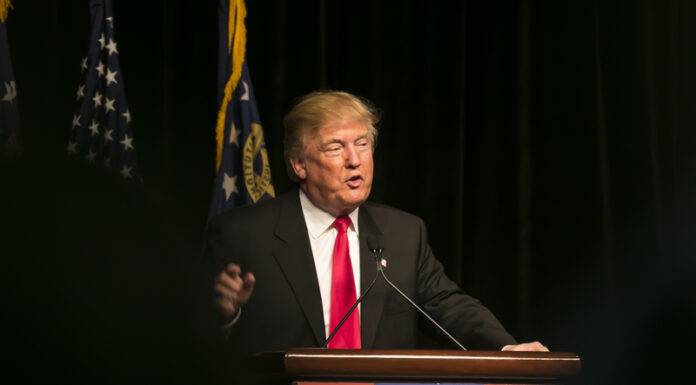With the 2024 presidential election approaching, there’s a flurry of speculation within the Republican party regarding who will join former President Donald Trump on the ticket. Trump recently offered a decisive statement that has redirected the discussion.
Former South Carolina governor and U.S. Ambassador to the United Nations, Nikki Haley, has been officially dismissed by Trump for the Vice President position. Despite her substantial political experience and diverse voter appeal, Trump’s choice implies a strategy possibly centered on allegiance and ideological consistency over political experience or popularity.
Trump, in a post on Truth Social, expressed his admiration for Haley but made it clear that she wouldn’t be his running mate, stating, “Nikki Haley is not under consideration for the V.P. slot, but I wish her well!” This declaration put an end to any speculations about her being a potential VP candidate and focused attention on other contenders.
The attention has now moved to individuals like Senator Tim Scott of South Carolina, Ohio Senator J.D. Vance, and Congresswoman Elise Stefanik of New York. Each of these potential vice presidential picks brings unique attributes and political savvy. Stefanik has been a vocal Trump supporter, using her platform to back his policies and energetically defend his leadership. Vance, who transitioned from a Trump critic to a supporter, aligns well with Trump’s base through his controversial views and political positions. Meanwhile, Tim Scott offers a more measured voice and has shown wide appeal that could broaden Trump’s influence among undecided voters.
The factors for Trump’s selection appear to go beyond conventional political credentials, emphasizing strong allegiance to his agenda and readiness to embrace his vision for America’s future. This strategy could favor candidates like Vance and Stefanik over others who have demonstrated a more reserved or critical attitude toward Trump’s more contentious policies and remarks.
The selection of a Vice President is a strategic move that extends beyond just electoral calculations; it sets the tone for a potential administration. Analysts note that Trump’s decision will convey a clear message about the path he plans to take the country if he secures the presidency once more.
As the Republican National Convention looms, the announcement of Trump’s running mate will be a pivotal event that could either unify or split the party’s base. The suspense grows as party members and voters alike wait to see which political figure Trump deems best suited to help him win back the White House.
Globally, this selection process is closely watched, as it not only influences U.S. domestic politics but also bears implications for international relations and global policy directions.
The decision on a running mate is a critical one, not just for Donald Trump but for the entire Republican Party as they gear up to challenge their opponents in what is expected to be a fiercely contested election season.








